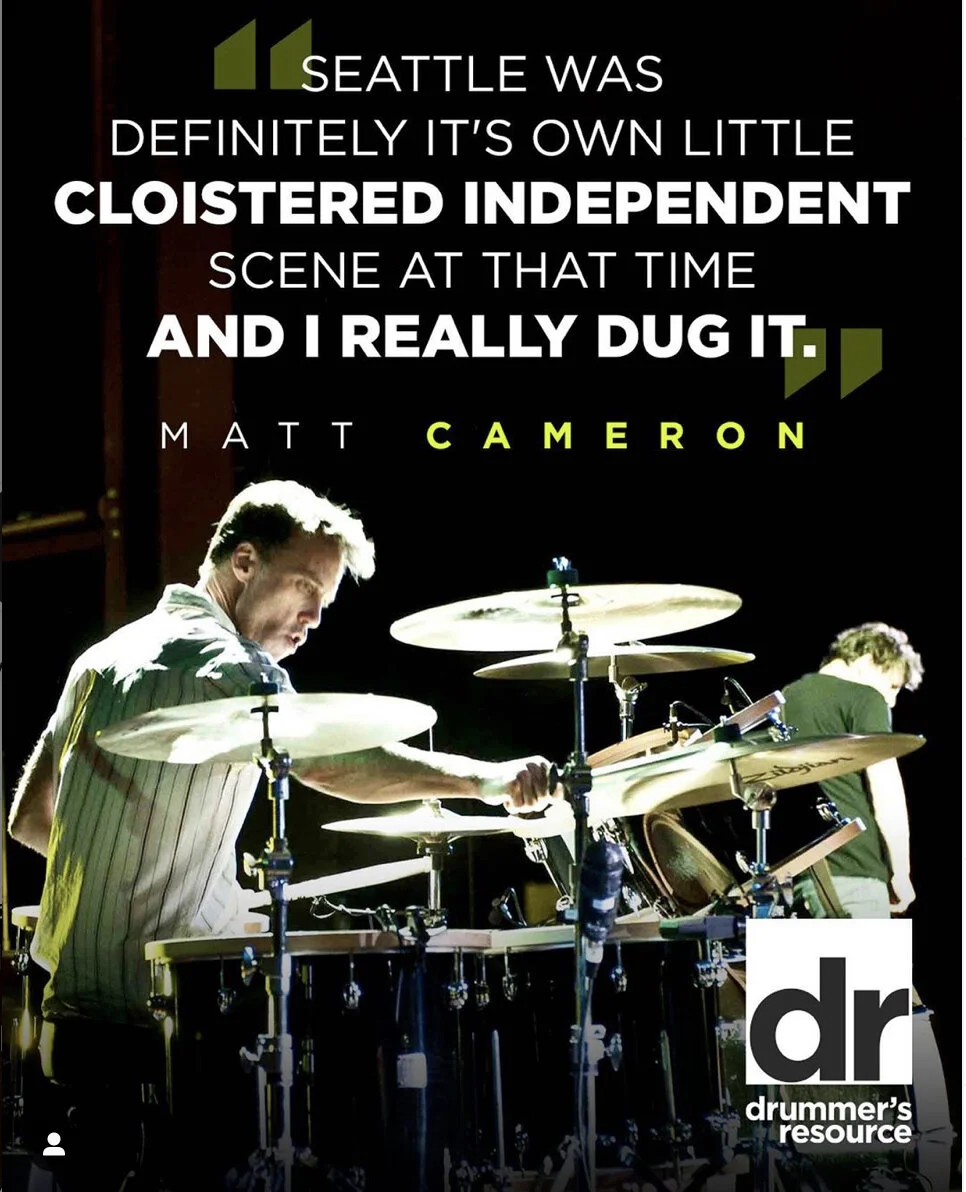AmericanSongwriter.com - "Soundgarden, Pearl Jam and Temple of the Dog Drummer, Matt Cameron, Talks Tunes"
Full Article | Jacob Uitti September 24, 2020
Excerpt:
“In order to get that fluid state between all of your limbs, you really have to practice,” Cameron says. “Once you make noticeable progress on the instrument, it can open doors.”
Growing up, the drummer listened to Led Zeppelin and Jimi Hendrix but around 18-years-old, Cameron took a “left turn” and began throwing himself into jazz, listening to drummers like Elvin Jones and Max Roach (“They did it in a way that wasn’t too jagged,” Cameron says). He doubled down on the essential elements of keeping and translating a beat. He was able to bring that knowledge to Soundgarden in the 80s, and beyond. The band would often write odd-timed songs, though not completely understanding how to articulate them. Cameron brought a technical expertise that aided the iconic band.
“It was fun to work in that sense with musicians who naturally would write things that way without thinking about it,” he says. “That really was beneficial for me as a musician. We really tried to approach each song as a piece of music as opposed to try and impress other musicians.”
If you ask him, Cameron will tell you he considers himself a musician first, even more than he does, specifically, a drummer. While he’s also acclaimed for his work behind the kit, he’s a skilled and accomplished songwriter. A number of his songs, for example, have become Soundgarden mainstays (see: “Mailman”). It was a skill he often kept in his “back pocket” but something he’d bring to the fore on occasion, often with success – thanks, largely, to encouragement from his prolific Soundgarden band members.
“One thing Soundgarden was always really proud of,” Cameron says, “was that we all wrote music. We felt like we were unique in that sense. All four of us could write a song and have that song be completely in our own voice.”
Today, Cameron, who continues to play and tour with Pearl Jam (when not in a pandemic), reflects easily and pointedly on both the past and the present. He swings between eras, projects and exercises as effortlessly as he does between the snare and high-hat. He’s dexterous, there’s no doubt about it. It’s important for Cameron to stay present and practiced as much as possible, even if that means looking back on what it felt like to take a stages with his world famous friends. His is a packed life. Which, paradoxically, means it’s clear, too.
“When your mind has to concentrate so much on this one thing,” Cameron says. “You’re able to get to a cool place where you turn off your mind. There’s no shortcut for it.”







